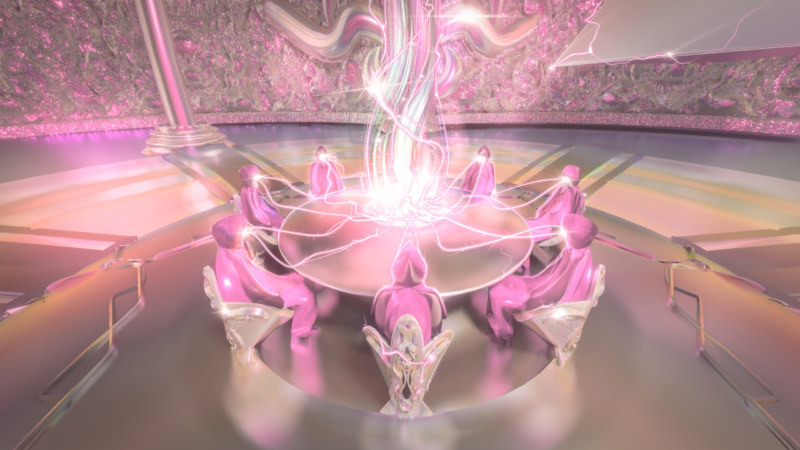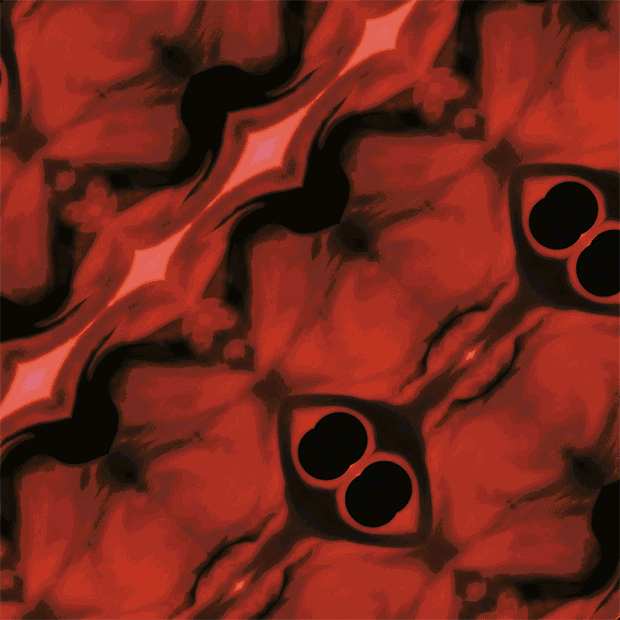ARTISTIC STATEMENT – Tuto Project
Here is a text written for a multiplayers VR project in development, produced by the French studio, Vrroom. When I was 18, I joined the National Film School, the Film & Television Institute of India, near Bombay, in Pune. There, following courses in scenario analysis, I discovered the term “Avatar”. its origin comes from Sanskrit, “avatāra”, or descent, can be translated as a “divine incarnation” (in the form of animals, humans, etc.) Although having been previously used in several video games and sci-fi works, the term avatar as referring to virtual bodies was first popularized by Neal Stephenson in his 1992 cyberpunk novel ‘Snow Crash’. Motivated by my 10 years of life experience in India, I found it interesting to probe the captivating link between the etymological origin and its modern use of the word “Avatar” in ‘Tuto’. For me, the main promise of virtual reality is to become someone else (and have a strong sense of being somewhere else);. Transferring one’s consciousness into a virtual world can be a metaphor for an ideal, and shared personal hallucination where the self would embody the image of the best of itself (a superego?), as even deities do (like the Hindu god Vishnu whose avatar is Krishna in the epic of the Mahabharata). This means we all can become extraordinary in a computer world, where the laws of nature are annihilated. This means we can end up with the power to fly in the air, to go through walls… Consequently, the immortality of TUTO also questions the sacrifice of sexuality that is implied by living infinitum in a virtual world. Will we still have sexual impulses and any desire to procreate once we will be living in the metaverse forever? Is there a Faustian pact to digitize one’s brain irreversibly? What will we give up in order to live eternally? Through the game mechanism of voice and hands’ swapping, TUTO challenges the VR medium by exploring the emotional aspect of being in a virtual body. Furthermore, the term “virtual body ownership” evokes the illusory attribution of a whole substitute body as one’s own body. To inhabit another body can be compared to acting. As a result, the gameplay of TUTO is based on techniques of comedy learning methodology. Since the creation will be partly intended for theaters, I find it fascinating to create bridges between the mediums of the stage and VR and as well to transform a spectator into an actor. We thus base ourselves on the Stanislavski acting principles, according to the theoretical book ‘The Construction Of The Character’ written in 1930. It describes techniques of actors: posture, movement, gait and voice placement. Through this process of self-disguise, as we wear a virtual mask, can we reveal unknown facets of ourselves? In TUTO, we deliberately chose to put off the virtual and eternal world that represents the “Edentated Garden”. The decision to focus on the “tutorial” comes from the intention to put the periphery at the center. In other words, if we use Jean Baudrillard’s “hyperreality“ term, we are exploring the symptoms of an advanced postmodern culture where hyperreality characterizes the way in which consciousness interacts with reality. In particular, when we lose our ability to distinguish reality from the imaginary and start engaging with the latter without understanding what is really happening; for example, a Disney movie lover can visit the fake world of Disneyland. TUTO’s initiation guide is a proxy reality, an artificial simulation and the promise of the “reality” of an ideal virtual world experience. Another layer of hyperreality will be the satirical aspect of TUTO, especially the pastiche of tutorials that abound on the Internet, which is a form of initiation of a ritual. In conclusion, TUTO, which is a tutorial to become happy until the end of time, becomes an excuse to extrapolate our contemporary culture of ‘well-being at all costs’. In my opinion, all these elements explore and question the relationship of the body and oneself in the face of new technologies. In this sense, I wanted to evoke the theme of the second chance by being an “avatar”. I was won over to writing an experience that offers an opportunity to start a new life. Through an emotional journey of a kind of second birth opportunity, I aim to address several questions that are constantly haunting me: do we not dream of eliminating all regret, remorse, doubt, guilt? What would we do if we were offered to come back to our 20 years old bodies, enriched with the experience that we have accumulated over a longer period of time?




